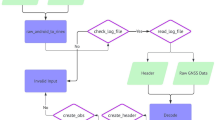Abstract
The justification for the establishment of CORS networks was initially in support of geodesy and other geoscientific applications at the global and regional level. However, increasingly GPS CORS network operators have sought ways of making their network infrastructure the basis of a profitable business. This has arisen with the introduction of real-time centimeter-level accuracy services, carrier phase-based modes of operation generally referred to as GPS-RTK (real-time kinematic). One approach is to try to recruit a core group of users who are prepared to pay for the GPS-RTK services. But this is only feasible if the number of users, and the fees that are charged, are sufficient to generate a reasonable return-on-investment (ROI). This ROI (or at the very least “cost-recovery”) is important for many network operators in order that they may provide for the maintenance and upgrade of the CORS infrastructure. On the other hand, there are those who advocate that there is no need to recoup CORS investment, that the installed GPS receivers should be seen as public infrastructure in a similar manner to roads, bridges, etc. This paper discusses some new business and operational models for GPS-RTK services. These include models for the establishment and operation of CORS infrastructure, service provision, business cases, and options for value-added services beyond the standard GPS-RTK service. One concept is based on a “client–server” model. Currently GPS-RTK service providers have no control over the quality of the results computed by users. This makes it difficult for them to justify charging for their services. What if instead of broadcasting RTK corrections and placing the onus of obtaining a final solution on the user and his equipment, the user’s coordinates are determined by the service provider? Putting the computational effort on the server side will justify more easily the charging of users for a value-added product: an accurate and quality assured coordinate in the local reference frame. This paper describes the client–server concept as well as possible business models that may underpin such a service model. These models include some derived from mobile telephony and service/hospitality businesses. Furthermore, with the projected proliferation of independent, competitive GPS-RTK services, the concept of a GPS data or service “broker” is worth exploring.



Similar content being viewed by others
References
Cruddace P (2006) OS Net—positioning accuracy at the heart of Great Britain. Geomatics World 15(1):22–25
Kanzaki M (2006) Inverted RTK system and its applications in Japan. In: Proceedings of 12th IAIN Congress and 2006 international symposium on GPS/GNSS, Jeju, Korea, 18–20 October, pp 455–458
Lachapelle G, Ryan S, Rizos C (2002) Servicing the GPS user. In: Bossler J, Jenson J, McMaster R, Rizos C (eds) Manual of geospatial science and technology, Chap 14. Taylor & Francis Inc., ISBN 0-7484-0924-6, 201–215
Rizos C (2002) Making sense of the GPS techniques. In: Bossler J, Jenson J, McMaster R, Rizos C (eds) Manual of geospatial science and technology, Chap 11. Taylor & Francis Inc., ISBN 0-7484-0924-6, 146–161
Rizos C, Han S (2003) Reference station network based RTK systems—concepts & progress. Wuhan Univ J Nat Sci 8(2B):566–574
Schrock GM (2006) On-grid goal: seeking support for high-precision networks. GPS World 17(10):34–40
TERIA (2005) Users can locate themselves on the ground in real time, GEOinformatics, see http://www.geoinformatics.com/asp/default.asp?t=article&newsid=1968, accessed on 19 November 2006
Acknowledgments
This paper is based on “Making GNSS-RTK Services Pay” by C. Rizos and J. van Cranenbroeck, presented at the FIG Congress, Munich, Germany, 8–13 October 2006. The author would like to thank Joel for his many stimulating discussions, and for drawing the figures used in this paper.
Author information
Authors and Affiliations
Corresponding author
Rights and permissions
About this article
Cite this article
Rizos, C. Alternatives to current GPS-RTK services and some implications for CORS infrastructure and operations. GPS Solut 11, 151–158 (2007). https://doi.org/10.1007/s10291-007-0056-x
Received:
Accepted:
Published:
Issue Date:
DOI: https://doi.org/10.1007/s10291-007-0056-x




